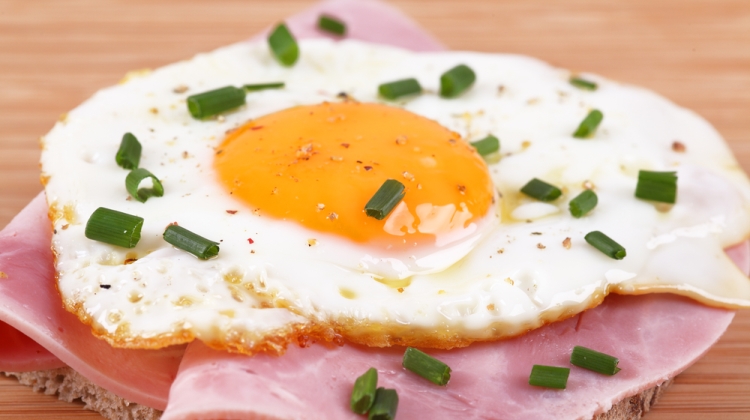Keeping heart disease at bay
The hardworking heart is one of the strongest organs in the body, capable of creating enough force with every pump to squirt blood across a distance of up to 10-metres. But the heart can be weakened with insufficient exercise, poor diets that are high in saturated fats and uncontrolled high blood pressure.
Heart disease – medically known as coronary heart disease, coronary artery disease or atherosclerosis – refers to the narrowing and hardening of the blood vessels in the heart. These blood vessels channel the heart with blood and oxygen and when these ‘supply lines’ are blocked, the essential flow of blood and oxygen cannot reach the heart, causing a heart attack.
What causes heart disease?
Heart disease can be caused by both inherited factors (things you cannot change) and lifestyle or environmental factors (things you can control).
Inherited risk factors for heart disease
- Gender: Men have a higher risk than women who are not menopausal. After menopause, the risk for a woman increases
- Genes: Any family history of heart disease increases your own risk
- Age: The older you are, the higher the risk
Lifestyle risk factors for heart disease
- Chronic illness such as diabetes, high blood pressure, lipid disorders (elevated cholesterol) and kidney failure are all risk factors for heart disease
- Smoking
- Those who have had a stroke
- Obesity
- A sedentary lifestyle
- Excessive stress
These factors all increase the risk that of plaque buildup in the arteries in of the heart. Plaque is a thick deposit that coats the inner lining of the artery, causing the vessel to narrow and harden. If the blockage in the blood vessels is partial, causing restricted blood flow, chest pains known as angina may occur. This is an early sign of a possible heart attack (medically known as a myocardial infarction). In serious blockages, when blood flow stops completely, a heart attack is said to have occurred.
Signs of a heart attack
The signs of a heart attack may not always be so clear. Not all heart attacks result in severe pain. Some attacks may even feel like bouts of gastric, an asthma attack or stomach aches. Some symptoms include:
- Breathlessness
- Dizziness
- Profuse sweating
- Profound tiredness
- Generalised discomfort
- Fainting
It is important to seek medical attention if these symptoms are prolonged and do not ease over time. When there is a heart attack and blood flow to the heart muscle is reduced the heart muscle may be weakened.
Treating a heart attack
Immediately after a heart attack, oxygen is given to raise the oxygen levels in the body. The main form of treatment in a heart attack is to ‘unblock’ the arteries.
Often, antiplatelet medications are given to ‘thin’ the blood so it passes easily through the blood vessels. If is this medication regime does not work, surgery may be required.
A thin tube (catheter) is inserted into a main artery in the leg or wrist to snake upwards towards the heart. Using a small camera on the end of the tube, the surgeon can locate the blocked artery or arteries and suck out or crush the clot. A stent which is a tubular metal spring coil is inserted at the blockage site to hold up the vessel walls.
In cases where the blockage is in a critical area of the heart, open heart bypass surgery may be needed. In this operation, a section of healthy blood vessel is taken from the patient’s arm or leg and used to create a detour that bypasses the blockage to the heart.
Life after a heart attack
After a heart attack, life time medication and scheduled medical checkups are usually needed to monitor the heart’s function and prevent future attacks.
Medicines include blood thinners, blood pressure medication, cholesterol-lowering statins and other drugs. Patients are also advised to maintain a healthy lifestyle and balanced diet that is high in fibre, fruit and exercise but low in saturated fat, salt and sedentary activities. Smokers should quit smoking as smoking can aggravate heart disease.
Tips for life after a heart attack
- Enroll in a cardiac rehabilitation programme. It will help you understand your risk factors and help you make informed choices about your lifestyle and diet.
- Manage your stress levels
- Keep any existing chronic illness under control (diabetes, high cholesterol, high blood pressure)
- Exercise regularly. Once your doctor has given you a clean bill of health, start a regular exercise routine. Heart-healthy exercise includes brisk walking, swimming, cycling and jogging
- Lose weight if you are obese. A 10 per cent decrease in weight is beneficial in lowering the risk of heart disease and diabetes
- Eat ‘good’ fats. Replace saturated fats in your diet with olive oil and fatty fish such as salmon and tuna.
Let our Life Planning Advisor
assist you to
| Answer your product enquiries | |
| Find the right plan that suits your needs and affordability |
Request a call back
Thank you for your enquiry. Fill in your details below and a Life Planning Advisor will get back to you within 48 hours.
Call times are Monday-Friday between 8.30am and 5.15pm (except Public Holiday).



